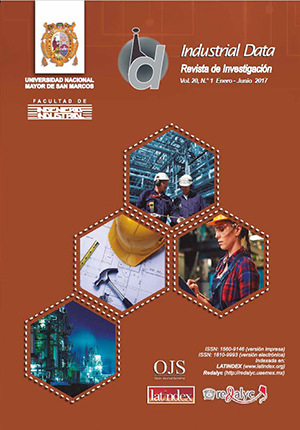Implementation of a thermostatic suit for thermal comfort control in order to improve performance on the job
DOI:
https://doi.org/10.15381/idata.v20i1.13485Keywords:
Thermal comfort, thermal stress, cold stress, thermoregulation, work performanceAbstract
The present research explains the impact of thermal comfort on the welfare, health and performance of workers in San Juan political tenure, considering that the current environmental conditions are too cold, workers wear uniforms that do not allow them to maintain A suitable temperature, accentuating the physical and psychological discomforts characteristic of the low temperatures that makes the worker stay in a permanent thermal stress, this affects not only the individual but the performance in the tasks assigned; Under this scenario was designed and implemented the use of a thermo-adjustable suit that allows to maintain optimum conditions of temperature adaptable to each individual using electronic devices, thus obtaining positive results from the users that allows us to understand that the security objectives have been met Industrial, occupational health and risk prevention, contributing authentically to the development of work activities, based on the human being's well-being and development.Downloads
Downloads
Published
Issue
Section
License
Copyright (c) 2017 Edison Meléndres Medina, Paúl Ricaurte Ortiz, Luis Arboleda Álvarez

This work is licensed under a Creative Commons Attribution-NonCommercial-ShareAlike 4.0 International License.
AUTHORS RETAIN THEIR RIGHTS:
a. Authors retain their trade mark rights and patent, and also on any process or procedure described in the article.
b. Authors retain their right to share, copy, distribute, perform and publicly communicate their article (eg, to place their article in an institutional repository or publish it in a book), with an acknowledgment of its initial publication in the INDUSTRIAL DATA.
c. Authors retain theirs right to make a subsequent publication of their work, to use the article or any part thereof (eg a compilation of his papers, lecture notes, thesis, or a book), always indicating the source of publication (the originator of the work, journal, volume, number and date).






